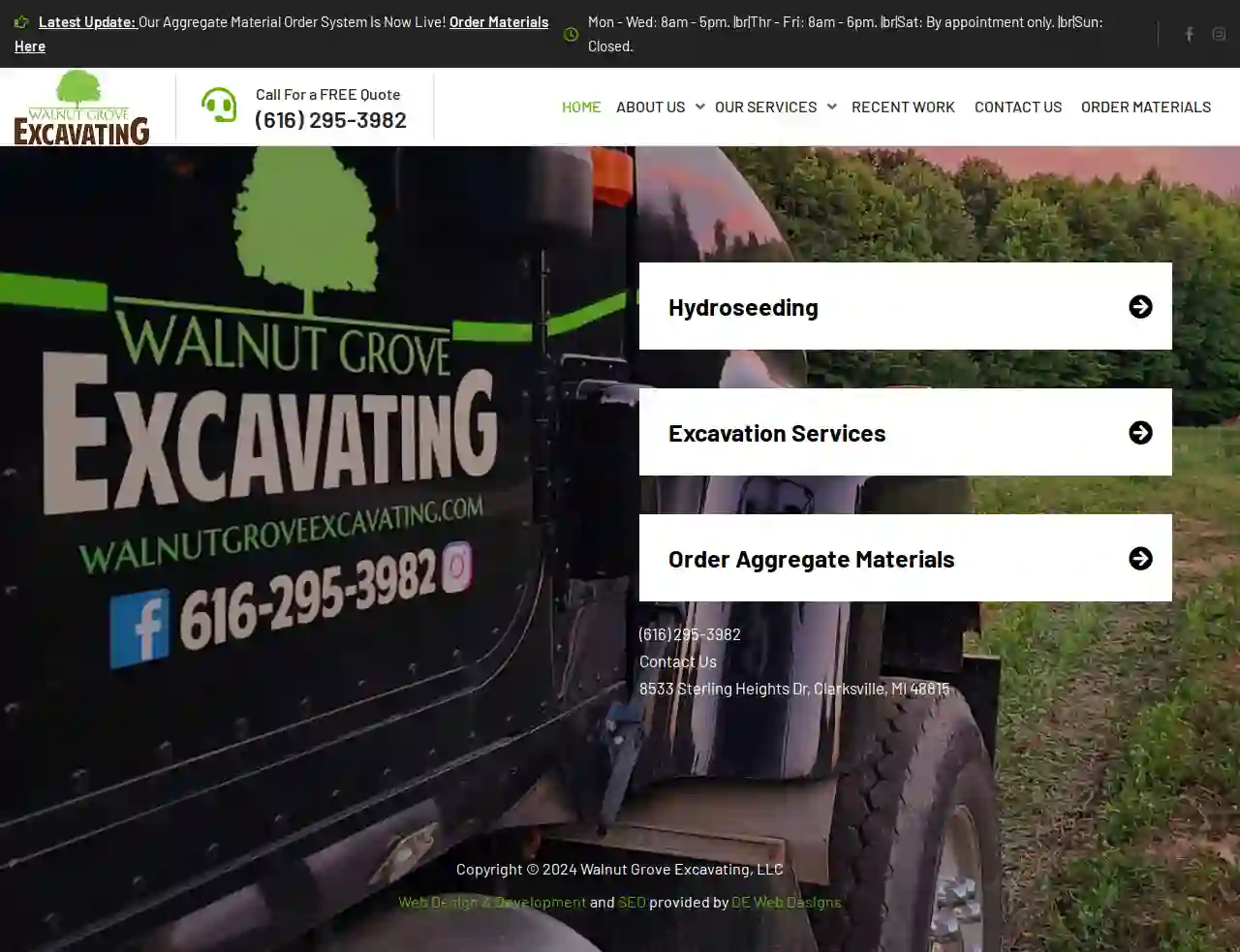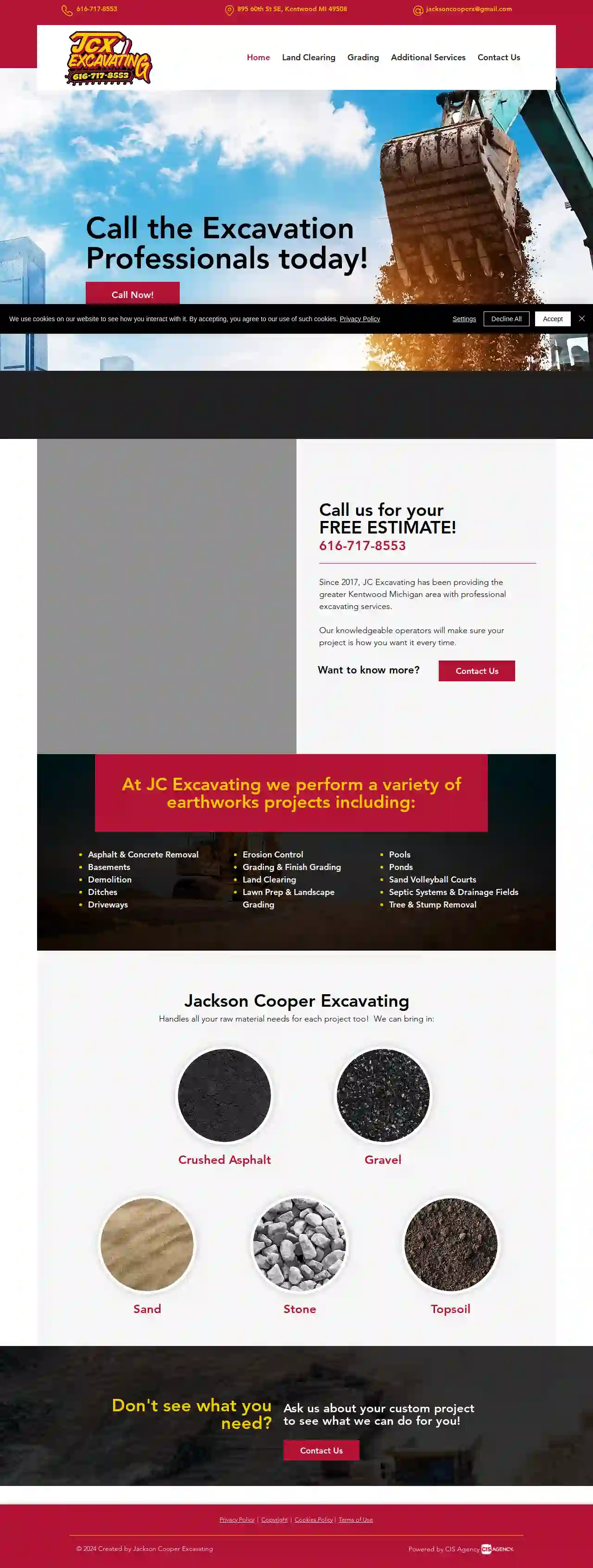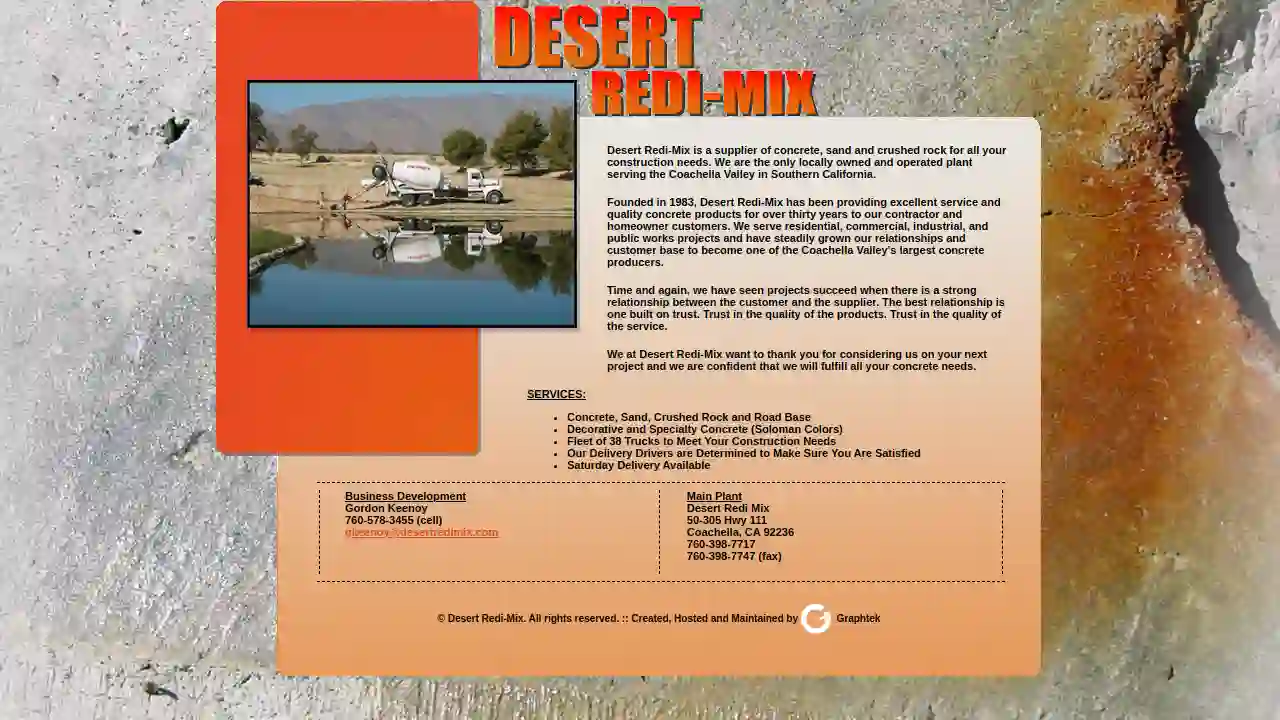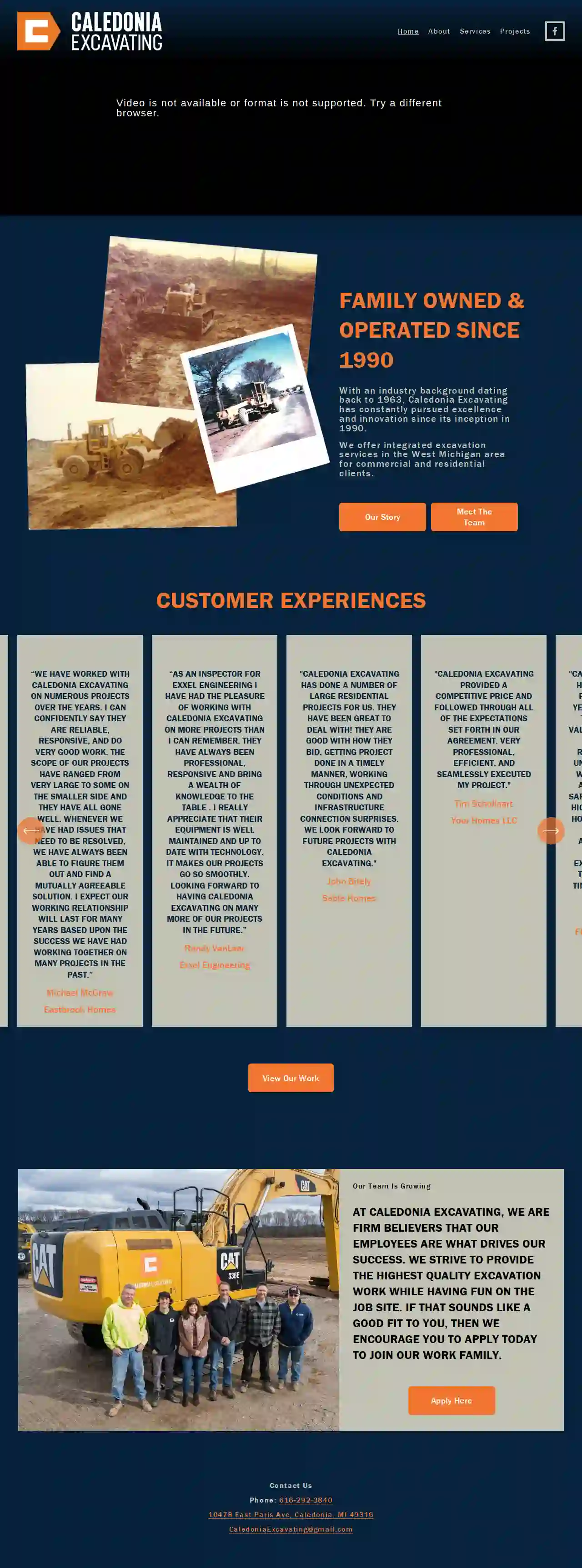Demolition Contractors Grosse Pointe Park
Top Local Demolition Contractors in Grosse Pointe Park
Get up to 3 Demolition Contractor quotes for your project today! Compare profiles, reviews, accreditations, portfolio, etc... and choose the best deal.

TNT Excavating
34 reviewsChelsea, 48118, USPonds New and Renewed We specialize in excavating and grading for all types of projects, including ponds, retention/detention maintenance, water features, home site development, land clearing, septic systems, basements, driveways, demolition, building pads, trenching, drainage, and much more! Our passion is to make every project something you're proud of. We offer a wide range of services to meet your needs, including: Ponds New and Renewed Retention/Detention Maintenance Water Features Home Site Development Land Clearing Septic Systems Basements Driveways Demolition Building Pads Trenching Drainage And much more! We also offer full landscaping services through our partners. Contact us today for a free consultation!
- Services
- Why Us?
- Gallery
Get Quote
Walnut Grove Excavating Hydroseeding and Aggregates
4.9294 reviews8533 Sterling Heights Dr, Clarksville, 48815, USWalnut Grove Excavating, LLC Walnut Grove Excavating is a family-owned and operated business serving the Clarksville, MI area. We are committed to providing our clients with high-quality excavation services at competitive prices. We have a team of experienced and skilled operators who are dedicated to getting the job done right. We are fully insured and bonded, so you can rest assured that your project is in good hands. We offer a wide range of excavation services, including: Hydroseeding Septic Tank & Drain Field Installation Site Demolition & Removal Grading & Resloping Excavation & Site Balancing Land Clearing Pole Barn Grading Pool Excavation & Removal Brush Hog/Removal Tree & Stump Removal Gravel Driveway Installation Retaining Wall Installation Driveway Excavation Pond Excavation Private Road Repair Silt Fence Installation Sidewalk Removal Perk Tests Trenching for Plumbing Driveway Removal We are dedicated to providing our clients with the highest level of service and satisfaction. We are committed to working with you to ensure that your project is completed on time and within budget. Contact us today for a free quote.
- Services
- Why Us?
- Gallery
Get Quote
Esper's Excavating LLC
510 reviews915 W. Beard Rd., 915 W Beard Rd, Perry, 48872, USEsper's Excavating: Your Trusted Partner for Excavation Services Esper's Excavating is a family-owned business deeply rooted in Perry, Michigan. We're dedicated to providing top-notch excavation services tailored to meet your specific needs. Our team boasts years of experience, ensuring efficient and effective project plans, whether you're a homeowner or a contractor. We take pride in our honest and professional approach, working closely with you to achieve your desired results. From small-scale projects to large-scale undertakings, we're equipped to handle it all. Our Expertise: Esper's Excavating offers a comprehensive range of services, including: Septic Systems & Perk Testing: We specialize in septic field installation, setting basic or engineered systems, and diagnosing minor repairs or providing system replacements. Septic risers and lid installation are also available. Sewer Line Repair & Replacement: We diagnose and repair city sewer lines, complete sewer pipe tie-ins, and connect to water systems. We work closely with local townships and cities to obtain necessary permits and inspections. Basements & Retaining Walls: We handle sand and gravel delivery for any project and can dig various basements, including walkouts, half walls, or crawl spaces. We ensure proper backfill, leaving the space clean and safe. Grading & Site Prep: We excel in soil removal, site development, drainage correction, and final grades. We collaborate with our customers to achieve the desired shaping for their project. Storm Water Systems: We create efficient systems to redirect water runoff from surfaces like sidewalks, roads, parking lots, or roofs. Land Clearing & Brush Hogging: We remove trees, shrubs, stumps, and debris, ensuring proper land balancing when needed. Driveways: We handle tiling, new driveway installations, and repairs. We can also deliver driveway material in a timely manner. Ponds: We dig farm ponds for wildlife habitats or your dream swimming pond. We also create diversion ponds for water separation or to dispose of standing water. Demolition & Leveling: We have experience demoing various structures, including barns, residential homes, and commercial buildings. We prepare the surface for construction, landscaping, or paving. About Us: Jon, the owner, is a licensed plumber pipe fitter with over a decade of experience. He works closely with local permitting departments. Growing up on a family farm, Jon has operated heavy machinery since childhood. His skills allow him to adapt to unexpected situations. Our knowledgeable and efficient operators are equipped to work in various environments, from tight residential spaces to open commercial areas. Esper's Excavating is fully licensed and insured. Work You'll Dig: Contact us for an estimate and let us help you bring your project to life.
- Services
- Why Us?
- Our Team
- Gallery
Get Quote
Hall's Trucking & Excavating
57 reviews13637 5 Mile Rd NE, Belding, 48809, USAbout Us We are a family owned and operated business! Denny Hall, owner, has been in the earth-moving business since 1995, and is fully licensed and insured for both Residential and Commercial work. We have company owned equipment which is well maintained. When choosing Hall's Trucking and Excavating, you can expect our great team to work hard on your behalf to get the job done! Our commitment to our customers is to maintain the highest level of quality and deliver cost efficient results without compromising service or safety! Contact Us Better yet, see us in person! We love our customers, so feel free to give us a call or email to set up a time to talk about your project.
- Services
- Why Us?
- Gallery
Get Quote
Jackson Cooper Excavating
51 reviews895 60th St SE, Kentwood, 49508, USCall the Excavation Professionals today! Since 2017, JC Excavating has been providing the greater Kentwood Michigan area with professional excavating services. Our knowledgeable operators will make sure your project is how you want it every time. Want to know more? Contact Us
- Services
- Why Us?
- Gallery
Get Quote
Desert Redi-Mix
34 reviews50-305 Hwy 111, Coachella, USDesert Redi-Mix: Your Trusted Coachella Valley Concrete Supplier Desert Redi-Mix is your go-to source for high-quality concrete, sand, and crushed rock in the Coachella Valley. We're a locally owned and operated company with over 30 years of experience serving the construction needs of homeowners and contractors alike. Since 1983, we've built a reputation for excellence, providing reliable service and top-notch concrete products. We cater to residential, commercial, industrial, and public works projects, and our commitment to customer satisfaction has made us one of the Coachella Valley's leading concrete producers. We understand that successful projects rely on strong partnerships. That's why we prioritize building trust with our customers. Trust in the quality of our products. Trust in the quality of our service. Thank you for considering Desert Redi-Mix for your next project. We're confident in our ability to meet all your concrete needs.
- Services
- Why Us?
- Our Team
- Gallery
Get Quote
A-1 Cesspool Services Inc
11 reviewsTroy, USA-1 Cesspool Service, Inc. - Your Coachella Valley Septic System Experts Since 1959, A-1 Cesspool Service, Inc. has been the trusted name in the Coachella Valley for all your septic system needs. We understand the importance of a properly functioning septic system and are dedicated to providing reliable and professional services to keep your system running smoothly. We offer a comprehensive range of services, including: Septic System Installation Cesspool Installation Seepage Pit Installation Leach Line Installation Drywell Installation Septic Tank Pumping Grease Trap Pumping Cesspool Pumping Septic System Certifications Backhoe Services Our team of experienced professionals is committed to providing high-quality workmanship and exceptional customer service. We use the latest technology and techniques to ensure that your septic system is installed and maintained to the highest standards. Whether you need a new septic system, regular maintenance, or emergency repairs, A-1 Cesspool Service, Inc. is here to help. Contact us today for a free consultation.
- Services
- Why Us?
- Gallery
Get Quote
Roto-Rooter Plumbing & Water Cleanup
4.7523 reviewsGulfport, USNeed a Plumber in Gulfport: Call Roto-Rooter Today for a Plumber in Gulfport Roto-Rooter plumbers in Gulfport provide full service plumbing maintenance and repairs and clogged drain cleaning, 24 hours a day, including toilet repairs. Roto-Rooters Gulfport plumbers offer residential and commercial plumbing services that customers depend on for all of their local plumbing needs. Trusted and recommended since 1935, Roto-Rooter is the premier provider of plumbing and drain cleaning services in Gulfport, MS. Homeowners and businesses depend on Roto-Rooter 24 hours a day, 7 days a week. Our specialty is emergency services. We stand by our estimates and guarantee our work. Your call will be answered by a trained customer service representative who will handle your request quickly and schedule service at your convenience. Learn About Our Trusted Services If you need plumbing work, call Roto-Rooter Plumbing and Drain Service to receive professional service from experienced and certified plumbers. Local plumbers in your area
- Services
- Why Us?
- Testimonials
- Gallery
Get Quote
Rick Anderson Excavating LLC.
54 reviewsBelding, USAnderson Rick Excavating: Your Trusted Partner for Excavation and Installation Services Anderson Rick Excavating is a family-owned and operated business serving the Grand Rapids, Montcalm County, Ionia County, and Mecosta County areas. With over 30 years of experience, we've built a reputation for providing high-quality excavation and installation services at competitive prices. We're committed to delivering exceptional customer service and exceeding your expectations on every project. Whether you're planning a new construction project, need to improve existing property, or require emergency service, we're here to help. Our team of experienced professionals is equipped to handle a wide range of projects, from small residential jobs to large commercial projects. We understand that your property is an investment, and we treat it with the utmost care. We use only the best equipment and materials to ensure that your project is completed to the highest standards. We're also fully licensed and insured, so you can rest assured that your project is in good hands. Contact us today for a free estimate and let us help you bring your vision to life!
- Services
- Why Us?
- Testimonials
- Gallery
Get Quote
Caledonia Excavating
51 reviews10478 East Paris Ave, Caledonia, 49316, USCaledonia Excavating: A Legacy of Excellence in West Michigan Since 1990, Caledonia Excavating has been a trusted name in the West Michigan area, providing comprehensive excavation services for both commercial and residential clients. Our family-owned and operated business boasts a rich history dating back to 1963, a testament to our unwavering commitment to quality, innovation, and customer satisfaction. We understand that your project is unique, and we approach each one with personalized attention and a dedication to exceeding expectations. Our team of experienced professionals is equipped with the latest technology and a deep understanding of the industry, ensuring your project is completed on time and within budget. At Caledonia Excavating, we believe in building lasting relationships with our clients. We are committed to open communication, transparency, and finding solutions that meet your specific needs. We are proud of our reputation for reliability, responsiveness, and delivering exceptional results.
- Services
- Why Us?
- Our Team
- Testimonials
- Gallery
Get Quote
Over 22,076+ Excavation Contractors on our directory
Our excavation contractors operate in Grosse Pointe Park & surroundings!
ExcavationHQ has curated and vetted the Best Excavation Contractors near Grosse Pointe Park. Find the most reliable contractor today.
Frequently Asked Questions About Demolition Contractors
- Size and Type of Structure: The method should be suitable for the structure's size, height, and construction materials.
- Site Location and Accessibility: The method should be feasible given the site's location, surrounding buildings, and access constraints.
- Environmental Considerations: Prioritize methods that minimize environmental impact, such as deconstruction or selective demolition if feasible.
- Budget: Different demolition methods have varying costs, so choose one that fits your budget.
- Safety: Prioritize methods that ensure worker safety and minimize risks to surrounding areas.
- Feasibility Studies: Assessing the viability and challenges of a demolition project.
- Demolition Planning: Developing demolition plans, including method selection, sequencing, and safety procedures.
- Permitting Assistance: Navigating the demolition permitting process and ensuring compliance with regulations.
- Hazardous Material Surveys: Identifying and managing hazardous materials, such as asbestos and lead paint.
- Cost Estimating: Providing accurate cost estimates for demolition services.
- Project Management: Overseeing the demolition process and ensuring it proceeds as planned.
- 'Can I see proof of your licensing and insurance?' Verify their credentials and coverage.
- 'What experience do you have with projects like mine?' Ensure they have relevant expertise.
- 'Can you provide references from past clients?' Check their reputation and customer satisfaction.
- 'What are your safety protocols?' Prioritize contractors who emphasize safety.
- 'How will you handle hazardous materials?' Ensure they have proper procedures for asbestos or lead abatement.
- 'What is your timeline for completing the project?' Understand the project duration.
- 'How will you manage noise, dust, and debris?' Discuss mitigation measures for minimizing disruption.
- 'What are your payment terms?' Clarify payment schedules and any required deposits.
Can I do demolition myself?
How do I choose the right demolition method for my project?
What is the role of a demolition consultant?
What questions should I ask a demolition contractor before hiring them?
Can I do demolition myself?
How do I choose the right demolition method for my project?
- Size and Type of Structure: The method should be suitable for the structure's size, height, and construction materials.
- Site Location and Accessibility: The method should be feasible given the site's location, surrounding buildings, and access constraints.
- Environmental Considerations: Prioritize methods that minimize environmental impact, such as deconstruction or selective demolition if feasible.
- Budget: Different demolition methods have varying costs, so choose one that fits your budget.
- Safety: Prioritize methods that ensure worker safety and minimize risks to surrounding areas.
What is the role of a demolition consultant?
- Feasibility Studies: Assessing the viability and challenges of a demolition project.
- Demolition Planning: Developing demolition plans, including method selection, sequencing, and safety procedures.
- Permitting Assistance: Navigating the demolition permitting process and ensuring compliance with regulations.
- Hazardous Material Surveys: Identifying and managing hazardous materials, such as asbestos and lead paint.
- Cost Estimating: Providing accurate cost estimates for demolition services.
- Project Management: Overseeing the demolition process and ensuring it proceeds as planned.
What questions should I ask a demolition contractor before hiring them?
- 'Can I see proof of your licensing and insurance?' Verify their credentials and coverage.
- 'What experience do you have with projects like mine?' Ensure they have relevant expertise.
- 'Can you provide references from past clients?' Check their reputation and customer satisfaction.
- 'What are your safety protocols?' Prioritize contractors who emphasize safety.
- 'How will you handle hazardous materials?' Ensure they have proper procedures for asbestos or lead abatement.
- 'What is your timeline for completing the project?' Understand the project duration.
- 'How will you manage noise, dust, and debris?' Discuss mitigation measures for minimizing disruption.
- 'What are your payment terms?' Clarify payment schedules and any required deposits.